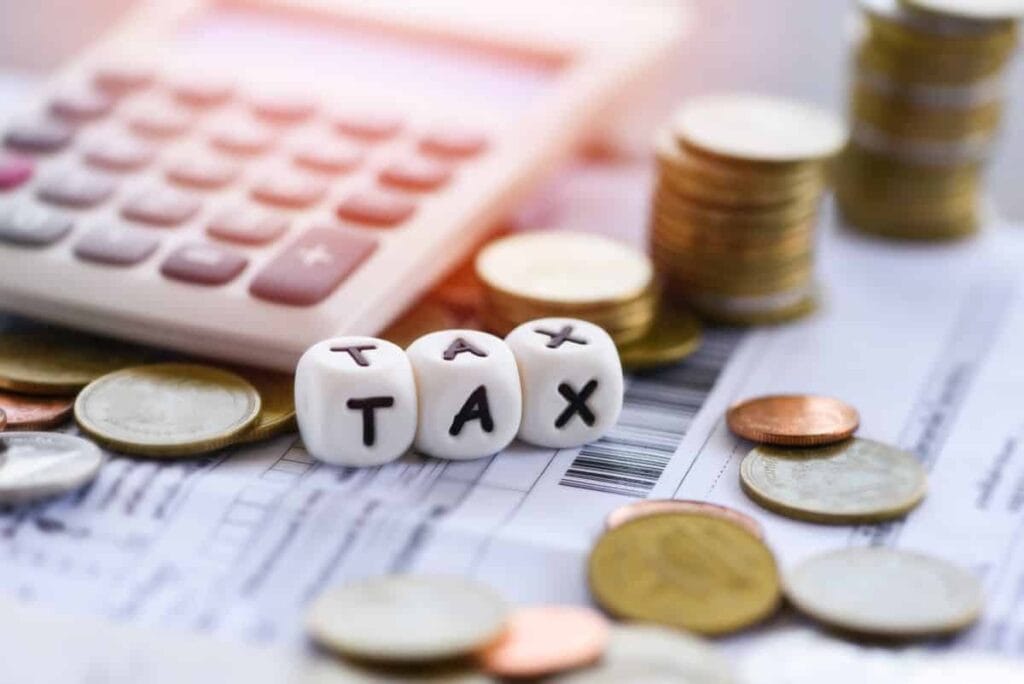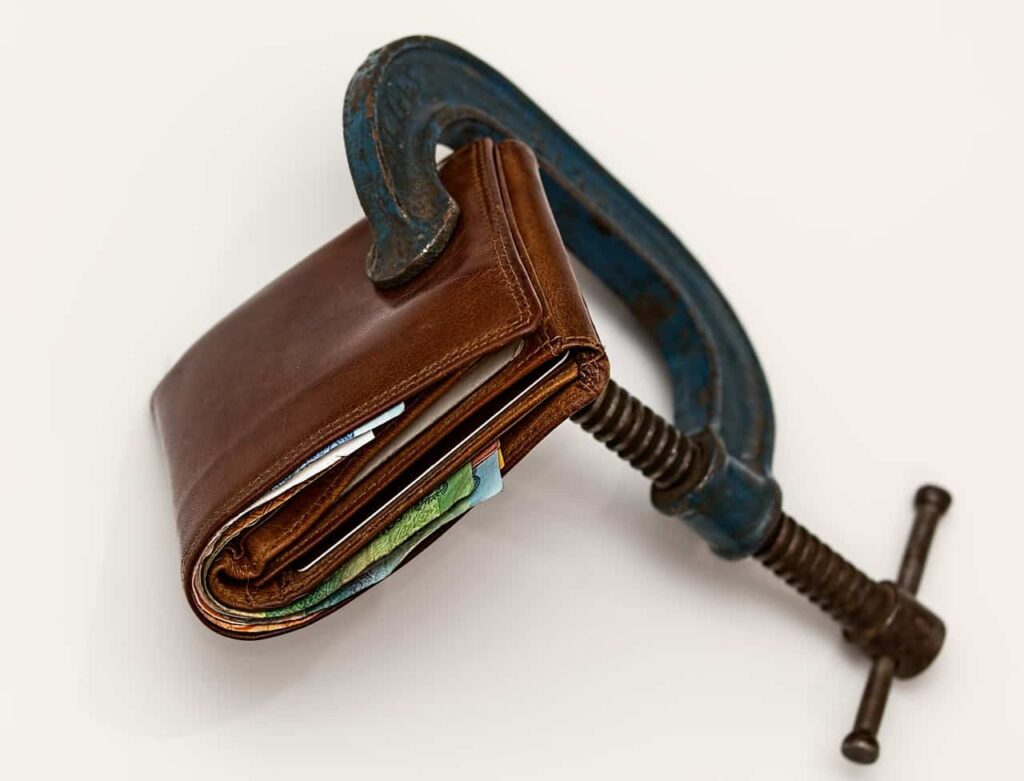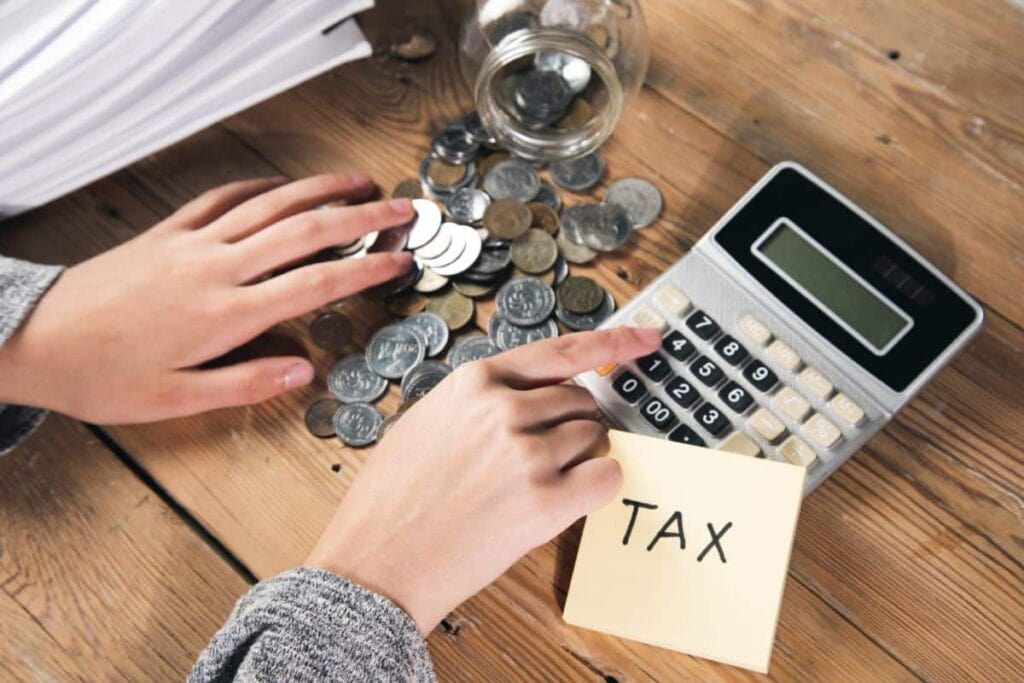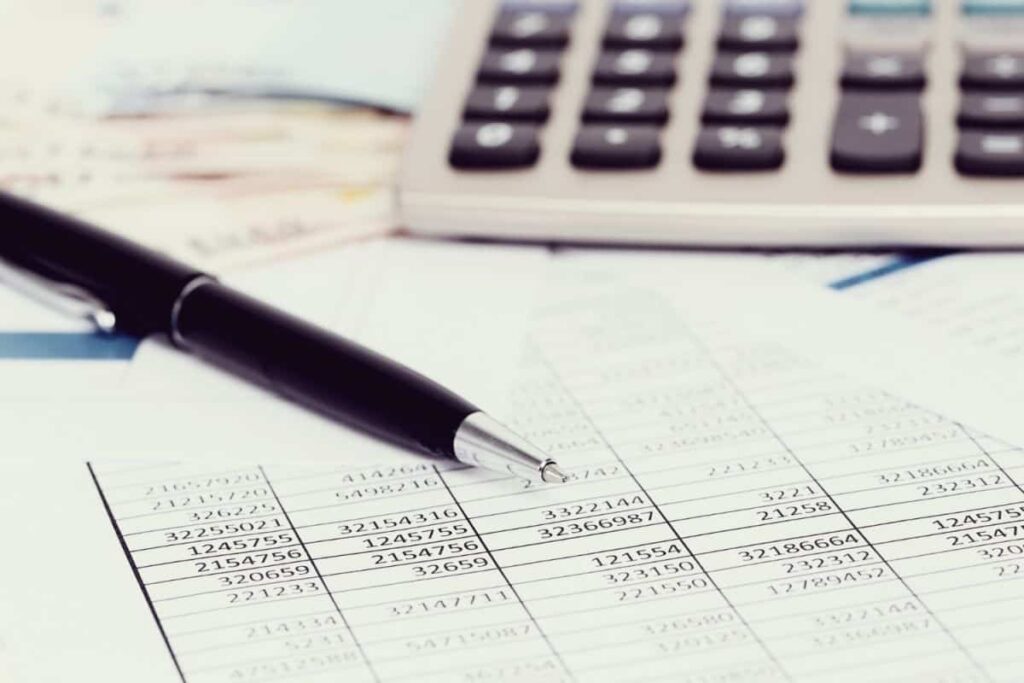Australians, the tax season arrives! For most of us, this includes compiling all of the appropriate documents, going to an accountant, or filling out our tax return yourself and submitting it. It doesn't matter if you've done your taxes a million times before or if this is your first time, it's always a good idea to get some professional guidance.
The time of year when taxes need to be filed can be stressful for a lot of individuals, but it doesn't have to be. If you are an individual living in Australia, the following advice should make filing your taxes simpler and less stressful for you. When it comes to reducing the amount of stress you feel during tax season, preparation is the key, so make sure you start early and keep organized. In addition, if you do have any inquiries, please do not be reluctant to consult with your tax preparer or accountant.
The filing of taxes is a chore that no one enjoys, but there are methods to make the process simpler. This year, taxpayers in Australia will need to be aware of and prepared for certain significant developments. For this reason, it is of the utmost importance to familiarize oneself with the regulations and make full use of all the deductions and allowances to which one is entitled.
Do you find it difficult to understand what steps you need to take to file your tax return in Australia? Are you aware of the deductions and allowances that you are eligible to claim? This article on the blog is going to supply you with all of the information that you require to make the procedure as easy and stress-free as it possibly can be for you.
We will walk you through the fundamentals of filing your taxes in Australia and offer some guidance to ensure that your return is accurate and has all of the required information. Continue reading this article, as it will provide you with all of the information you require on Australian tax returns!
Tax season is never an easy time for many people, particularly those who are new to the process of filing their taxes. If you are an individual from Australia, the following guidance is intended to assist in making the procedure a little bit simpler for you. Before you even begin, make it a priority to compile all of the information and paperwork pertaining to your taxes that is relevant.
This includes your income statements, PAYG summaries, bank statements, and any other pertinent documentation you may have. Next, find a reliable online tax calculator to assist you in determining your taxable income and the amount of GST that you are responsible for paying. Finally, you need to file your return. You can do this either online or through a licensed tax agent. Choose the method that is easiest for you.
If you are a taxpayer in Australia, the deadline for submitting your tax return is at the end of the month of July. It's crucial to make sure that you file your taxes accurately so that you don't get in any difficulty with the Internal Revenue Service (IRS). Filing your taxes can be a challenging and time-consuming procedure. In this post, we will provide you with some advice on how to file your taxes and avoid making a number of blunders that are very typical.
Are you getting ready to file your income tax return? If this is the case, you are probably wondering where to begin and what deductions you have the potential to be eligible for. The following is some information on the most popular deductions claimed by Australian taxpayers, as well as some recommendations on how to learn more about each of these deductions individually. When it comes to filing your taxes, it can be helpful to have an idea of what options are available to you.
Tax season has arrived once more, and if you're anything like the majority of people living in Australia, you're definitely looking for some guidance on how to complete your tax return. Make it a priority to claim every deduction and credit to which you are entitled when filing your taxes this year in order to maximize the amount of money you will be refunded. To be of assistance to you, we have compiled a list of suggestions that will make the process of filing your taxes simpler than it has ever been.
As the filing deadline for individual taxes in Australia draws closer, many people are rushing to compile all of the necessary documents and figure out what actions they need to do. Tax preparation can feel like an insurmountable challenge, but it doesn't have to be an insurmountable chore.
This article will give you with some fundamental pointers that will assist in making the process a little bit simpler for you. Read on for some useful ideas that will make the process of filing your taxes less stressful, regardless of whether this is your first time doing so or you've been doing it for years.
By adhering to these straightforward recommendations, you will be able to breeze through tax season with a minimum of anxiety!
Tax Season Advice
1. Do it on time
You have until October 31st to submit your personal income tax return if you are doing it yourself through the myGov portal. However, by the end of July, the majority of your data should have been pre-filled. At this point, all that is required of you is to check that the facts are accurate, add in your legitimate deductions, and then submit.
Regular meetings with your financial planner can keep your financial goals on track
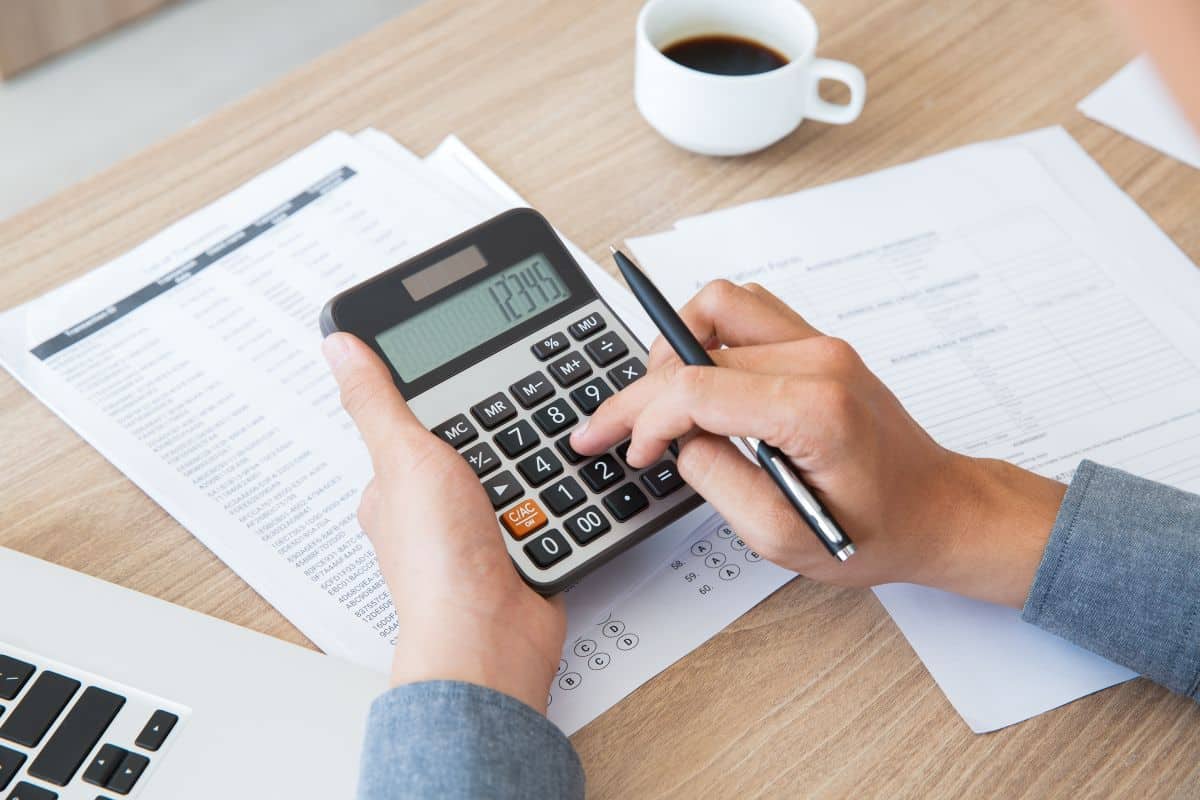
Make sure you include any income you received from investments, the gig economy, or capital gains on your tax return. Then, in the event that you are unable to file your return by the deadline, a registered tax agent will be able to do so on your behalf.
2. Read the ADF Guide provided by the ATO.
The Australian Tax Office (ATO) has created guides for members of the Australian Defense Force (ADF) that clarify what types of income are required to be disclosed and what types of expenses can be deducted. For certain personnel of the Australian Defense Force (ADF), work-related deductions could include things like the cost of a car or travel, the cost of a uniform, the cost of mess fees, the cost of self-education charges you've paid for, and fitness expenses.
If you have worked from home, particularly during the COVID-19 outbreak, you should investigate whether or not you are eligible to receive reimbursement for home office expenses like as phone and internet service. On their website, the ATO provides information about the deductions that may be available to you.
3. Keep receipts
Make sure that any assertions you make are true and that you can back them up with evidence. However, the data matching software used by the ATO, which includes comparing your claims to those of your peers, is quite effective. Our tax system is predicated on the principle that taxpayers should be honest in reporting their income.
Taxpayers are also chosen at random each year for audits, and if you have made greater claims, you may be highlighted for deeper inspection if you picked an audit. Therefore, providing proof to support your assertions might not necessarily be requested of you, but you should still be ready to do so in case it is. If you make claims that are undocumented or fraudulent, you could face significant fines as well as repeated audits of your financial dealings with the government in the years to come.
4. If you are in need of assistance, get some.
Consider utilizing a registered tax agent (RTA) or a certified accountant if your financial situation is particularly complicated and you do not feel comfortable preparing your return on your own or if you require specialized tax assistance.
Use the search tool on the website of the Tax Practitioners Board (TPB) to verify the registration status of the individual or organization of your choice, as well as to locate an RTA operating in your region. In addition, you might look for a competent accountant through a professional body such as CPA Australia, which is one example of such an organization.
5. Get an understanding of the costs involved.
When it comes to selecting an RTA or accountant, you have access to hundreds of different possibilities. Some even take out advertisements in military publications. When selecting a provider, you should make sure that they are knowledgeable about the tax deductions that are available to members of the ADF. Additionally, you should make sure that you understand the structure of their fee, which should be a flat fee and not a percentage of any tax refund to which you are entitled.
6. Be organised
Because tax preparers, including accountants and tax agents, typically charge you based on the amount of time they spend working on your return, being organized can help you save money on these fees. Imagine that instead of being able to present proof to back up the statements you wish to make, you instead choose to compile receipts written on a variety of papers and hand them over in the traditional "shoebox." In that scenario, you will either end up receiving a tax refund that is significantly smaller than it should be or incur significantly higher professional fees.
7. Be wary of anyone who tries to sell you investment products.
Some real estate tax advisors and accountants may also hold licenses to practice as financial counsellors, mortgage brokers, or real estate promoters, or they may work as part of a group of professionals based out of the same office.
In exchange for your agreement to a "financial health check" or the purchase of investment products from which they will earn an incentive payment, these operators may offer to do your tax return for free or at a rate that is heavily discounted. Alternatively, they may offer to do it at a heavily discounted rate. Before you hire someone to prepare your tax return for you, you should be informed of the goals of the counsellors in question. It's possible that they aren't looking out for your best interests when they behave.
8. If you're late, don't wait
If you haven't submitted a tax return for prior years, you should consider doing so voluntarily rather than risking getting caught by the Tax Office. We encourage that you submit any pending returns.
In this manner, fines will normally be smaller, and agreements can be made to pay off any owing taxes in a manner that is affordable. In addition, there are numerous instances in which you can be eligible for a refund, which means that outstanding lodging returns might even be a financially rewarding experience.
9. Put your tax return money to good use.
If you are fortunate enough to receive a sizeable tax return, make sure you put it to good use. An unexpected windfall such as this one could be used toward the settlement of high-interest debt, the establishment of an emergency fund, or the beginning of a savings plan for a more substantial purchase that you want to make in the not-too-distant future. To make the most of the chance, you should think about taking a little break on it and mulling over your various possibilities during that time.
Using your retirement savings to make tax reductions possible
Depending on the specifics of your situation, you can make contributions to your retirement account in a number of different ways. One possibility is that they will assist you in the management of your taxes.
You will generally pay just 15 percent tax (or 30 percent tax if your income is higher than $250,000) on contributions to your superannuation that are made from your pre-tax salary. This includes contributions made by your employer as part of the Super Guarantee program and contributions made through salary sacrifice.
You will be subject to a tax rate of up to 15 percent on any earnings your superannuation account generates for you. If you are receiving a pension1 from your super, then any earnings you receive are exempt from taxation. However, investment earnings made outside of a superannuation account may be subject to taxation at your highest marginal rate.
An experienced accountant is essential for accurate financial reporting and analysis.
Here are some tips:
Be careful not to get caught going above the limit.
Be mindful not to put in more money into your retirement account than the maximum allowed each year by the contribution limitations.
As soon as you go above these limits, the tax benefits will no longer apply, and your super payments may be subject to a tax rate of up to 94 percent.
On the website of the Australian Taxation Office (ATO), you will discover additional information regarding contribution caps.
Consult with a trained expert.
Because taxes can be difficult to understand, you should think about having a conversation about your individual circumstances with your accountant or a taxation expert.
Increasing the amount of money you have in your retirement account may be able to assist you to pay a lower effective tax rate if you have a greater income.
If you are earning a lower pay or taking a sabbatical from your work, it may be worthwhile to look into options that will assist you in making contributions to your retirement fund.
The following are some of the methods by that you can make contributions to your retirement fund to help you reduce your taxable income:
1. Salary sacrifice
You have the option of requesting that some of your salaries be contributed to your superannuation from your employer. This salary sacrifice is typically made in addition to the minimum percentage payments required by law to be made toward your Superannuation Guarantee account, which your employer is required to make.
Before putting this plan into action, you should be sure to investigate how your employer handles donations made through salary sacrifice.
What kind of tax break are you offering?
Your regular pay is immediately contributed to your retirement fund, which means that the amount is deducted from your gross income (i.e., before taxes). This indicates that it will be subject to taxation at the rate of 15% unless you have already reached the maximum level of concessional contributions.
Beginning on the first of July in 2017, an additional 15 percent of tax may be applied to your income if it is greater than $250,000.
There is a cap on the amount of money that can be contributed to your superannuation account while still receiving favourable tax treatment. On the website of the Australian Taxation Office (ATO), you will be able to locate the most recent information available on contribution limits.
It is important to keep in mind that, in contrast to the employee super guarantee, businesses are not required to give salary sacrificing to their workers. You will need to have a conversation with your employer in order to determine whether or not this is a choice that is open to you.
2. A co-contribution from the government
Your eligibility for a government co-contribution, as well as the amount of that payment, is dependent on both the amount of money you make and the amount of money you put into your superannuation account. Each year that you are qualified, you are entitled to a maximum co-contribution of $500.
What kind of tax break are you offering?
Because a government co-contribution isn't counted as part of your taxable income, you won't owe any tax on it when it's contributed to your retirement savings by the government.
3. Personal super contributions
You can improve the amount of your retirement savings by contributing more money to either your own or your spouse's retirement account.
Your personal super contributions are the sums of money that come out of your income after taxes that you put into your super fund (that is, from your take-home pay).
These contributions are as follows:
- Are additional to any mandatory contributions to superannuation that your employer already makes on your behalf;
- Contributions paid to a superannuation fund through a salary sacrifice arrangement should not be included.
Unless you have claimed a tax deduction for them, personal contributions are considered non-concessional contributions and will count toward the maximum amount of non-concessional contributions you are allowed to make.
If you are eligible for a tax deduction for personal payments to superannuation, such contributions are counted toward your concessional contribution maximum. Contributions made by spouses are not eligible for a tax deduction; but, if their income is $37,000 or less, your spouse may be eligible for a spouse contribution tax offset of up to $540 if they make less than you do.
Up until the age of 75, any contributions you make to your personal retirement account could potentially qualify for a tax deduction.
If you are between the ages of 67 and 75, you will be required to pass the work test in order to be able to contribute to your retirement account and claim the deduction.
You may be eligible for an exemption from the work test beginning on July 1, 2019, provided that your total superannuation balance is less than $300,000 and that you satisfied the work test in the preceding fiscal year.
In order to be eligible for a tax deduction for personal contributions, you will need to fill out and submit a proper notice of intent to your super fund. Only then will you be able to claim the deduction. Before you are able to claim the deduction on your tax return, the valid notice that you have provided must first be accepted (in writing) by your fund.
On the ATO website, you can check to see if you are qualified to claim a deduction for personal payments made to superannuation funds.
It is important to keep in mind that if you subtract your payments from your income, you will not be eligible for a super co-contribution.
If you're not working, you can add to your super.
Even if you are not working, if you are under the age of 67, you are eligible to make personal payments to your super fund that is subject to taxation.
If you are 67 or older, the following conditions must be met before you are eligible to make personal after-tax payments to your superannuation plan:
- Aren't yet 75 or older;
- have satisfied the requirements of the work test, which are to have held a job for a minimum of 40 hours per week for a minimum of 30 weeks throughout the fiscal year.
In any other case, you can be qualified for an exemption from the job test if you are a recent retiree and you have not utilized the work test in any of the prior financial years.
Your total superannuation balance must be less than $300,000 at the beginning of the financial year following the year in which you last met the work test in order for you to be eligible for the work test exemption. This requirement is checked at the beginning of each financial year. In addition, if you are at least 65 years old, you might be entitled to make a donation known as a downsizer contribution.
What kind of tax break are you offering?
You might be able to lower the amount of income that is subject to taxation by claiming a tax deduction for your personal contributions to your retirement fund or by making a downsizer contribution. This may result in a decrease in the overall amount of tax that you owe.
4. Spouse contributions
According to the Australian Taxation Office's definition, a spouse is "another person (of any sex) who:
- You are in a relationship with someone who must be registered as such under the laws of a state or territory;
- despite the fact that you are not legally married to each other, this person lives with you in a true domestic partnership as though you were married.
What’s the tax concession?

Consider the following scenario: you are in a relationship and during the current financial year you made contributions to your spouse's retirement savings account (RSA) or super fund that were less than the threshold amount. If this is the case, you may be eligible for a tax offset for spouse contributions if your spouse was younger than 75 years old at the time the contribution was made.
The maximum tax credit for contributions made by a spouse is $540.
5. Super contribution splitting
You may be able to transfer some of your contributions that were made before taxes, often from the previous fiscal year, to the super account of your partner through some super funds.
Contributions such as those made by an employer and those made personally that are eligible for a tax deduction are examples of contributions made before taxes are taken out. Concessional contributions is another name for these types of payments.
How does it work?
You have the option of transferring any concessional contributions that you have previously made to your spouse's superannuation account from the previous financial year. These contributions will count toward your contribution cap. The lesser of the following amounts is the maximum that can be transferred to your partner's bank account:
- 85 percent of the concessional payments you made throughout the previous fiscal year;
- The maximum allowable amount of concessional contributions for the given fiscal year.
What kind of tax break are you offering?
This is one approach to ensure that your partner does not fall behind in their retirement savings contributions.
Your contribution to your spouse's retirement account will not count against either of your maximum contributions. This is due to the fact that it was already counted against your limit when you made the initial contribution to the cause.
It is possible that you will be in a position to provide superannuation and pay for insurance premiums for your low-income or non-working spouse if you and your spouse share the responsibility of making superannuation contributions. You should also consider whether or not you will be able to keep the amount of your transfer account below the limit of $1.6 million2 when you retire.
Advice on How to Decrease the Amount of Taxes You Pay
If you set aside some quality time to get your financial situation in order, you may find that you wind up with some more savings, despite the fact that the thought of filing your taxes may not excite anyone.
If you put in the effort at the beginning, you will be able to enjoy the benefits and returns of your labour much more quickly in the future. Therefore, in order to assist you in coming out on top, we have compiled five suggestions that will assist you in paying less tax during this year.
1. To Make a Gift
It is always a good thing to give, especially since any amount over $2 given to a charity that is registered can be deducted from your taxes. Donating your hard-earned money is a meaningful way to spend that money, and the fact that you can deduct your donation from your taxes is merely a bonus. You will receive a receipt after making a donation, which you should keep for your records. When tax season comes around, all you need to do to claim a deduction for your charitable contributions is total up all of the receipts you have saved.
Keep in mind that the money you donated will not be returned to you immediately when you obtain your tax refund; rather, the amount will be subtracted from your income that is subject to taxation. The amount of the donation will be returned to you as a percentage of the total.
2. Claim All
You are permitted to make a claim for anything that is connected to performing your work. Make sure that you include the portion of the purchase that is relevant to your work in the item that you deduct from your taxes. For example, if you bought something that is partly for your job and partly for your personal life.
Keep the receipt in your possession and consult a tax professional if you are unsure whether or not an expense can be deducted from your taxes. Keep all of your receipts for as long as possible, just in case you're eligible for a deduction on them, and if not, get rid of them as soon as you realize you can't use them.
3. Timing Expenses
If you are able to submit all of your receipts for costs before the month of June is over, you will be able to claim them on this return and start enjoying the benefits right away. If you make the purchase after July, on the other hand, you will have to wait an entire year before you are eligible to claim it.
Right now is the ideal moment to take a step back and evaluate the way you are currently handling your financial matters. There is still time for you to gather all of your documentation and receipts, even if you have fallen behind or gotten careless with them. This will allow you to get the largest possible refund possible.
4. Information Regarding Investments
Do not be in a hurry to make any kind of investment; always consult with a financial planner before taking any action. Every investment you make should provide benefits for you both immediately and over the course of the investment's lifespan. If your investment ultimately results in a loss of capital, it serves little purpose to reduce your current tax bill by a negligible amount.
You are going to be responsible for paying tax on any assets or shares that you have sold in the past that have resulted in a profit for you. Reduce the number of your assets that are already sitting at a loss to keep this to a bare minimum.
Be very careful about selling shares while you're already losing money on them and then buying them again when the next tax year begins. The ATO has been given the instruction to invalidate any benefits that fall under this category as well as issue penalties as part of a crackdown on the practice that is known as 'wash sales.'
5. Expert Assistance
The more knowledge you have regarding your taxes, the more accurate your budget will be. Consult with a tax accountant who is an expert in the field before formulating your strategy for dealing with the Internal Revenue Service (IRS).
Doing your homework will guarantee that you can get the most out of your tax return, so talk to your tax advisor about the kind of costs that are tax-deductible and get clear on what you can and cannot claim. They will frequently be knowledgeable about deductions that you are not.

